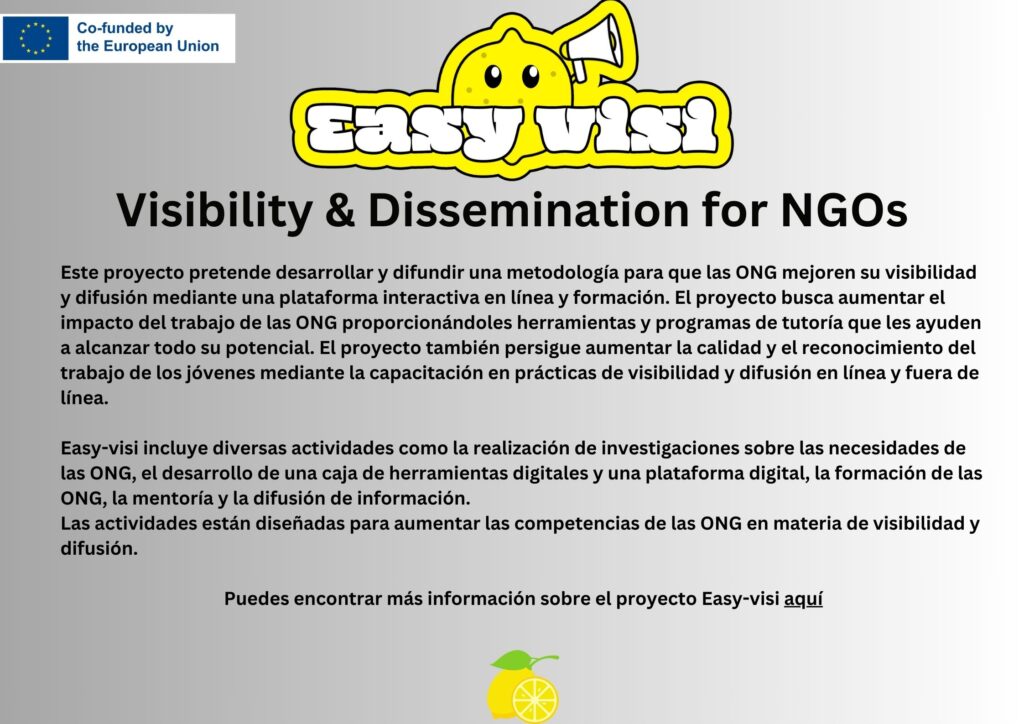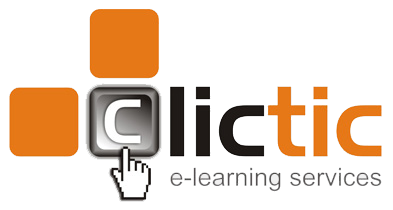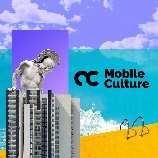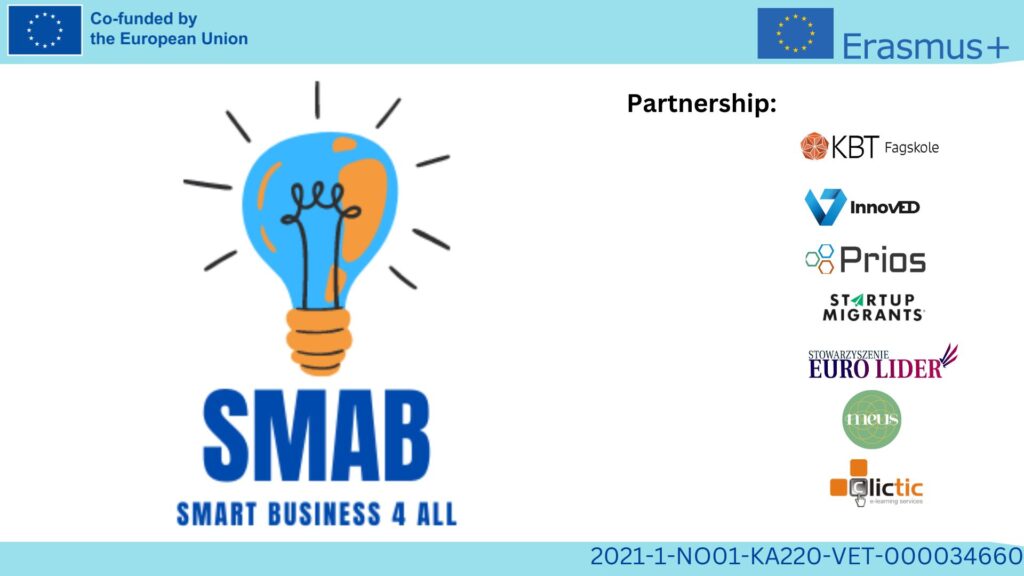
spain is calling.
training with us
Erasmus+, Small-scale partnerships in youth – KA210-YOU or KA1 Mobility of individuals and staff ‘Europe in the way’
We suggest you, your employees, and colleagues get the best training experience for your personal and professional growth. Academia Postal 3 training centre is happy to help you with this.

Clictic is a training entity in the digital technology field, whose main activity is the provision of services to educational centres, public entities, and companies. Specifically, it has extensive experience in the development of learning platforms, the creation of digital content for training courses, and the development of ICT applications and software projects. The entity counts on 13 permanent staff (technicians, managers, teachers and administrative staff), and 150 students.
We know how to do a good European project and want to teach you!
Clictic is also focused on writing and managing Erasmus + projects. In particular, it participates in KA2 projects linked to the digital inclusion of citizens, the digital literacy of young people to improve their job opportunities, and the use of digital tools in the promotion of art and culture.
During the last 10 years, Clictic have successfully implemented more than 40 local and international projects.
TIME TO COLLABORATE
With this presentation, we are inviting you, as a young but well-promising organisation, your employees, colleagues volunteers, and adult individuals to collaborate under the umbrella of the Erasmus+.
KA1 Learning mobility of individuals and Mobility project for higher education students and staff 'Europe in the way'
The Actions are expected to bring positive and long-lasting effects on the participants and participating organisations involved, as well as on the policy systems in which such activities are framed.
As regards pupils, students, trainees, apprentices, adult learners and young people come to the training entities or/and organisation to produce one or more of the following outcomes:
- improved learning performance
- enhanced employability and improved career prospects
- increased sense of initiative and entrepreneurship
- increased self-empowerment and self-esteem
- improved foreign language and digital competences
- enhanced intercultural awareness
- more active participation in society
- better awareness of the European project and the EU values
- increased motivation for taking part in future (formal/non-formal) education or training after the mobility period abroad

Learning mobility of individuals allows organisations to send pupils, students, trainees, apprentices, adult learners, and young people for the training abroad. These activities involve partner organisations with different backgrounds and active in different fields or socio-economic sectors (e.g. traineeships of university students or VET learners in enterprises, NGOs, public bodies; teachers in schools following professional development courses in companies or training centres; business experts giving lectures or training in higher education institutions, etc).
While Mobility project for higher education students and staff welcomes student individuals or groups of any form of studies (short cycle, bachelor, master, and doctoral levels) as well as staff members of the organisations, universities, colleges, etc to do mobility in another country. They can carry out a traineeship in an enterprise, a research institute, a laboratory, an organisation, or any other relevant workplace. This action also supports higher education teaching and administrative staff to take part in professional development activities abroad as well as staff from the world of work to teach and train students or staff at higher education institutions. These activities may consist of teaching as well as training periods (such as job shadowing, observation periods, training courses).
How does it work?
- We agree on collaboration and partnership.
- We conduct a video call, choose topics, training centre and agree on the priorities, goals, and expectations from your side.
- With our project proposal, we apply for funding.
- We wait for the positive result and feedback from a National Agency.
- When a project is approved – the stated number of participants come to Spain and attend training.
- Our trainers deliver training at the best level, and your participants enjoy their time in Spain.
- When the project duration is over – we report about achieving our goals and receive final payment.
KA210 Small-scale partnership funding
This action aims at reaching out to grassroots organisations and newcomers to the Programme and less experienced organisations, reducing entry barriers to the Programme for organisations with smaller organisational capacity.
It should last between 6 and 24 months.
Activities to implement:
Project management: activities that are necessary to ensure the adequate planning, implementation, and follow-up of the projects, including smooth and efficient collaboration between project partners. In this phase, activities typically include organisational and administrative tasks, virtual meetings among partners, preparation of communication materials, preparation and follow-up of participants taking part in activities, etc.
Implementation activities: can include networking events, meetings, working sessions to exchange practices and to develop results. These activities may also involve the participation of staff and learners (provided that their participation contributes to the achievement of project objectives).
Sharing and promotion activities: organisation of conferences, sessions, events aimed at sharing, explaining, and promoting the results of the project, whether they are in the form of tangible results, conclusions, good practices, or any other form.
How does it work?
- We agree on collaboration and partnership.
- We conduct a video call, choose topics, training centre and agree on the priorities, goals, and expectations from your side.
- With our project proposal, we apply for funding.
- We wait for the positive result and feedback from a National Agency.
- When a project is approved – we follow every phase of the project. We guide you through the whole process of the project and you having a nice experience in project management subject.
- When the project duration is over – we report about achieving our goals and receive final payment.
- When a project is approved – the stated number of participants come to Spain and attend training.
- Our trainers deliver training at the best level, and your participants enjoy their time in Spain.
Topics to choose:
- Emotional intelligence and stress management
- Project management
- IT
- Spanish language
- Social inclusion
- Circular economy
- Social Entrepreneurship
- Financial management
- Any other topic you would like
SPAIN IS CALLING



Also, we have departments that have accreditation and can host students with no age limits all around the country. It’s up to you, which city to choose. We suggest you the following locations:
- Vigo
- Pontevedra
- A Coruña
- Madrid
- Seville
- Barcelona
- Malaga
- Valencia
- Valladolid
- Lisbon
- Mexico
Contact information
If you are intrigued, interested or curious to know more about training opportunities in Spain – contact us and we will be happy to help you:
Oksana Shamonova, project manager – oksana.shamonova@gmail.com

PROYECTO ERASMUS+ MOBILE CULTURE
Mobile Culture es un proyecto de 24 meses cofinanciado por el programa Erasmus+ en el ámbito de la educación de adultos. La asociación está compuesta por Fundacja Culture Shock (Polonia), Clictic (España), Euroform RS (Italia) y Roes Cooperativa KOIN.S.EP. (Grecia).
El proyecto está dirigido a profesionales que trabajan en programas de educación no formal dirigidos a población adulta, especialmente a colectivos con menos oportunidades, en instituciones culturales y ONGs.
El objetivo es proporcionar herramientas y recursos tecnológicos para fomentar la innovación en el sector, abarcando a un mayor número de audiencia. Para lograr este objetivo, se desarrollarán cuatro productos:
1. Una Guía de Buenas Prácticas sobre nuevas tecnologías y herramientas digitales para la educación no formal en el sector cultural y artístico.
2. Una Plataforma de Formación, que empleará metodología innovadora con fines educativos
3. Una Publicación Digital con artículos, recomendaciones y ejemplos de talleres de alta calidad en el ámbito cultural y artístico.
4. Un curso en línea sobre nuevas tecnologías y herramientas digitales para la educación no formal dirigido a profesionales de GLAM / ONG.
Los impactos esperados son:
1. El desarrollo de una red de profesionales interesados en el empleo de la tecnología en el sector cultural.
2. Un aumento en el número de actividades y servicios educativos brindados por las instituciones culturales.
3. Una mayor capacidad de creación y desarrollo de productos digitales por parte de las entidades.
4. Mejora de las competencias digitales en adultos en riesgo de exclusión social.
5. Una mayor conciencia sobre las conexiones entre cultura, arte y digitalización.

PROYECTO ERASMUS+ WONDER WOMEN WORKS
- Fundación Docete Omnes (España)
- Clictic (España)
- EIA Ensino e Investigaçao e Administraçao (Portugal)
- Viva Femina (Polonia)
- Terra Tech (Alemania)
PROYECTO ERASMUS+ SMAB - Smart Business for All

SMAB es un proyecto KA220 financiado por el programa Erasmus+ que cuenta con un partenariado formado por:
- KBT Vocational School (Noruega)
- Prios Kompetanse (Noruega)
- Startup Migrants UG (Alemania)
- InnovED – Center For Education And Innovation (Grecia)
- Stowarzyszenie ‘Euro Lider (Polonia)
- Markeut Skills Sociedad Limitada – MEUS (España)
- Clictic (España)
El proyecto SMAB tiene como principal objetivo dotar a las personas que residen en áreas remotas, y también a personas migrantes o refugiadas, de las habilidades, los conocimientos y las actitudes necesarios para iniciar su propio negocio y contribuir al desarrollo del capital humano de los países receptores. El propósito del proyecto a largo plazo es la reducción de la marginación de los usuarios finales vulnerables debido a estereotipos potenciales, y conseguir su incorporación como miembros activos de la sociedad mediante la construcción de relaciones en los ámbitos tanto personal como profesional.
Resultados del proyecto:
- Resultado 1: Estudio de casos nacionales sobre las necesidades de la población migrante o refugiada.
- Resultado 2: Programa de formación certificado.
- Resultado 3: El Kit Profesional.
- Resultado 4: El centro de recursos.
Más información aquí.
Proyecto Erasmus+ Need for Lead
Need for Lead es un proyecto de 24 meses cofinanciado por el programa Erasmus+ en el ámbito de la educación de adultos y de la inclusión. La asociación está compuesta por Terra Tech Förderprojekte e.V. a (Alemania), Clictic (España), Asociación Juvenil Almenaras (España), Asociación Nevo Parudimos (Rumanía) y Együttható Közösségépítő Egyesület (Hungría).
Este proyecto se plantea como un puente entre las personas con discapacidad y sus familias con toda la comunidad nacional, local e incluso internacional a través de las tecnologías digitales.
Need for Lead pretende contribuir a promover una imagen positiva del Plan de Digitalización también en Europa. Sensibilizará sobre el tema a los principales beneficiarios, quienes, a su vez, transmitirán conocimientos relevantes a sus comunidades.
Debido a su carácter internacional, este proyecto tiene como objetivo mejorar el desempeño de las comunidades locales en materia de inclusión y digitalización, involucrando a nuevos actores en la vida social y económica de cada país participante.
Todas las partes interesadas, incluidos los gobiernos, las empresas, los sindicatos, las organizaciones de empleadores, los centros de personas con discapacidad y las ONG, tienen un papel importante que desempeñar en la creación de un futuro laboral digitalmente inclusivo que beneficie a todas las personas.
El proyecto Need for Lead se ha diseñado para abordar y presentar la solución a las siguientes dos necesidades:
- Elaborar una Guía de adaptación mental de los familiares de aquellos colectivos desfavorecidos.
- Ofrecer soluciones de empleo online. Un futuro digital inclusivo del trabajo es clave para el desarrollo del proyecto.
Más información aquí.
©Clictic e-learning services 2025
